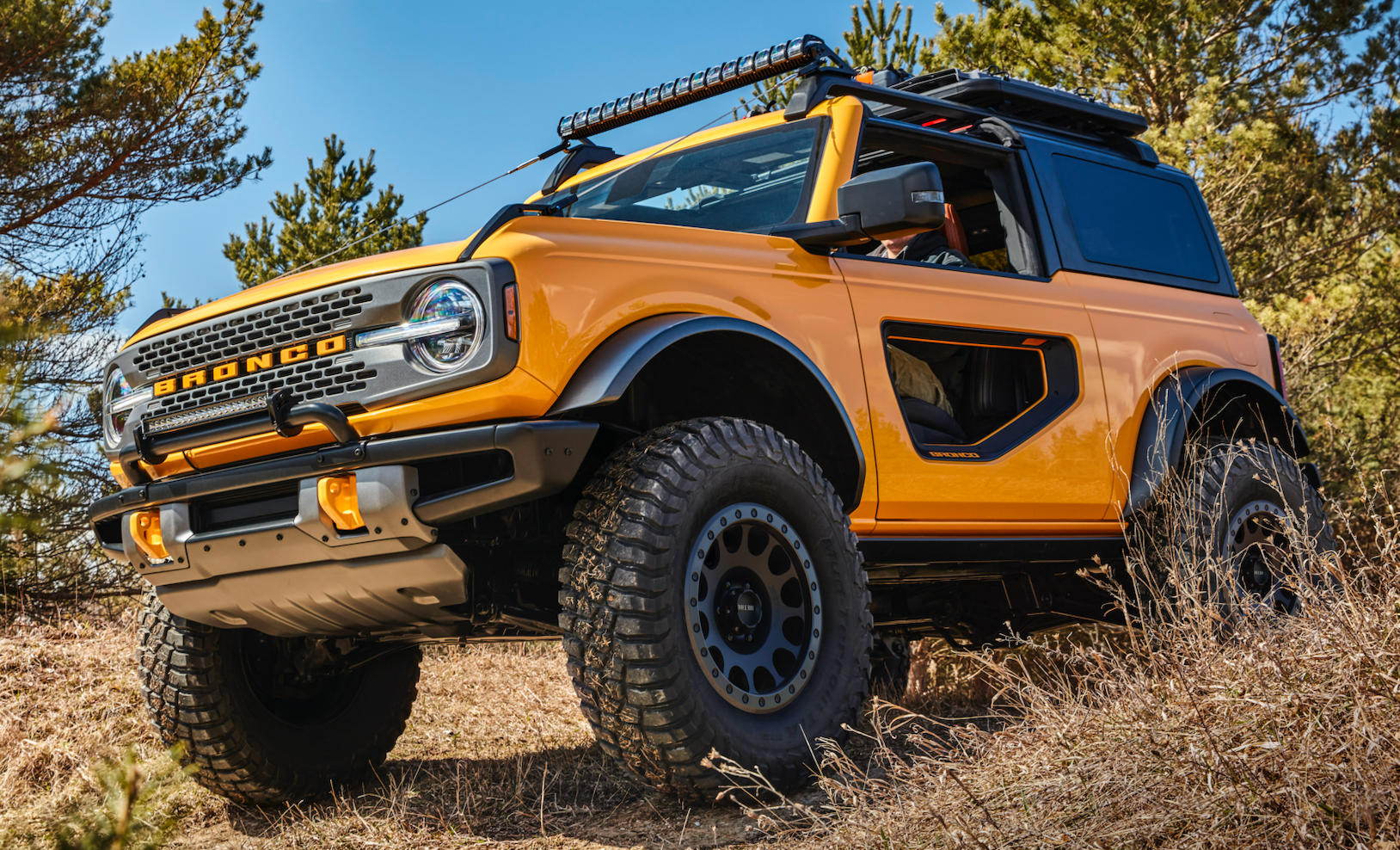Will I Get A Better Deal On An In-Demand Car If I Pay Cash?
As Jalopnik's resident car buying expert and professional car shopper, I get emails. Lots of emails. I've decided to pick a few questions and try to help out. This week we are discussing using cash to buy a hot car, choosing between a Model 3 and a Honda.
First up will paying cash give you more leverage on an in-demand car?
I am about to come into some money ... enough to pay cash upfront for a new car. Of course, the vehicle I have chosen to do this is the new Ford Bronco (I did the $100 reservation thing.)
My question is if I pay for the vehicle up front, do you think that will give me some leverage for a better price or as a tool to get some stuff thrown into the deal? I know that this will be a hot model and deals will be nonexistent, but I'm thinking if I pay cash, I may be able to have the dealer throw in the Sasquatch package as an incentive to "seal the deal." I dunno ... should I even be paying cash at all?
So this whole "cash is king" approach is one of those things that seems to never go away when it comes to car buying. While you might have some leverage flashing your bills to a private party selling their ride on Craigslist, usually cash will give you no additional negotiation power when it comes to buying a car from a dealer.
Dealers, for the most part, want you to finance. They make money from the bank by getting you a loan. Furthermore, they have the opportunity to pitch you things like service plans, warranties, and such that also increase their profit. If someone is paying cash, chances are it's a lot harder for the finance office to make their money. If you are looking for a deal on a Bronco, being open to financing may make that store a little more likely to flex on price.
I also want to address your point about "throwing things in" something like the Sasquatch Package is likely to be a factory option that will cost a grand or two (or more). A dealer just can't give that to you for free especially if the car doesn't already have it. They can discount the car to offset the price of that package, but that is no different than just getting a reduction in price off the MSRP. Things that are added at the dealer level like floor mats, cargo covers, mud flaps, and the like. Those can be "thrown in" without an additional cost to you, but those items still cost the dealer money. If they are giving them to you for free, they are making that money back elsewhere either in the price of the car or perhaps a lower trade value.
Next, what is better for a high mileage driver who prioritizes reliability and fun?
My wife and I both commute to our jobs 40+ miles each way. Right now we both have SUVs (we have two kids and a dog), but after 'Rona is over, we'd like to buy a car that we'd share solely for commuting to work. (She works weekends, I work during the week.) If you add up our miles to and from work, it's around 40,000 miles per year. I want to buy something reliable that gets great mileage, but also something sporty and comfortable. Is "You idiot, buy a Honda Accord!" the only right answer?
I plan on keeping the car for at least four years. Right now, I really like the Model 3. I've read all the reports... yes, little things go wrong here and there along the way in the interior, but for the most part the moving parts "under the hood" are reliable.
Don't get me wrong, Accords are great on paper. But I haven't warmed up to the idea of buying one. Are there other reliable cars out there that will get me to 150k miles and be enjoyable to drive? Is the Model 3 a risk?
The Model 3 tends to be one of those cars that owners either really love or find really disappointing. I guess it all depends on the luck of the draw and if you got a well-built example or a unit that should have been checked a bit more carefully before it left the factory. If you got a good one that Tesla will probably treat you well for those four years even with the higher mileage usage. You will likely have some significant fuel savings over that time as well.
It seems like your gut is telling you to buy the Tesla, but the real issue is cost and budget. Remember, the Tesla no longer qualifies for the Federal Tax Credit on EVs, but something like a Honda Clarity, which is kind of like a plug-in Accord, still has that incentive available.
The other issue you mentioned is this idea of a fun car, and that all depends on how you define that in regards to your driving experience. Again this is where reviews of the Model 3 are mixed, some folks love the technology and the acceleration, and consider that "fun." People that like to feel connected to their car have described the Model 3 as fast, but not engaging. They say it's more like operating a piece of technology rather than driving a car.
It's probably worth taking a few test drives to see what speaks to you behind the wheel.
Got a car buying conundrum that you need some assistance with? Email me at tom.mcparland@jalopnik.com!
